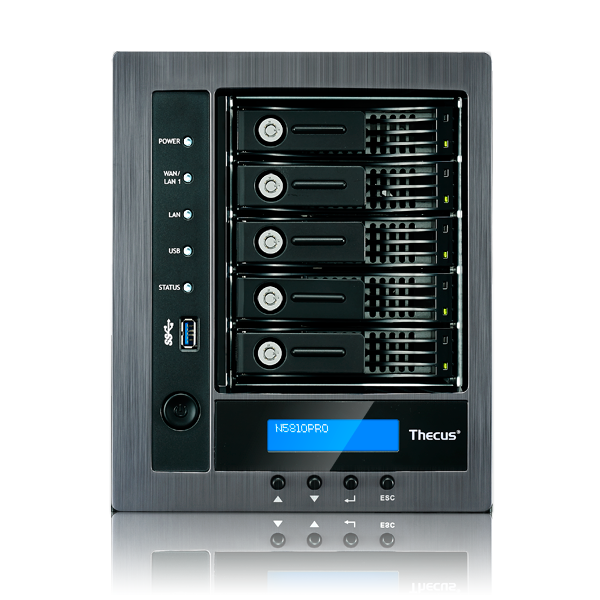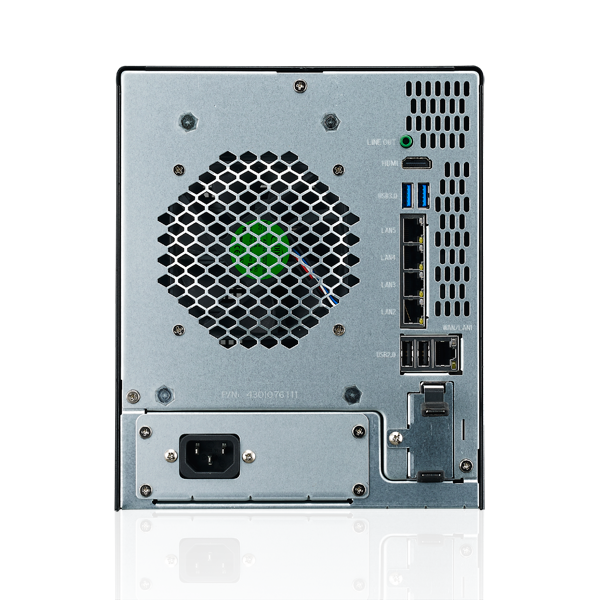Thecus Announces NAS With Built-In UPS
Thecus announced a new innovative NAS (Network Attached Storage) device that features a built-in lithium-ion battery backup to prevent data corruption caused by sudden power loss.
One of the most damaging things that can happen to electronic devices, and especially storage devices in RAID configurations, is sudden power loss. The unexpected shock of losing power can potentially cause data corruption. To prevent this from happening, the common solution is the purchase of a separate battery backup unit.
Thecus has opted to combine a mini-UPS directly into its N5810PRO NAS. The device features a 2000 mAh 28.8 Wh lithium-ion battery. This provides enough capacity to keep the NAS operational for approximately 30 seconds. If power is not restored within that time, the N5810PRO will begin to shut down all operations. Thecus said the added UPS will prevent the RAID array from compromise caused by sudden power loss.
The N5810PRO from Thecus comes equipped with an Intel Celeron J1900 Quad-Core SoC processor, with 4 GB of DDR3 memory. The NAS supports up to five SATA hard drives and supports RAID 0, 1, 5, 6, 10 and JBOD. N5810PRO also includes five gigabit LAN RJ45 ports that support load balancing and failover with multiple network connections, along with other link aggregation features.
The N5810PRO includes five USB ports, two of them USB 2.0 and three USB 3.0. These ports can be used to back up phones, cameras or external hard drives. There is also a single HDMI port found on the back, which can be plugged directly into a TV for device management, Web browsing and HD video playback.
Included on the front of the device is a small LCD screen and four buttons used to navigate the menus. It can also be accessed remotely through a PC, or by using an application available for iOS and Android called "T-Dashboard" that lets you manage, upload to, or stream from the NAS.
The N5810PRO includes Acronis True Image software and supports snapshot backups. Cloud storage through DropBox, Amazon S3 and ElephantDrive are also natively supported.
Get Tom's Hardware's best news and in-depth reviews, straight to your inbox.
Follow Kevin Carbotte @pumcypuhoy. Follow us @tomshardware, on Facebook and on Google+.
Kevin Carbotte is a contributing writer for Tom's Hardware who primarily covers VR and AR hardware. He has been writing for us for more than four years.

